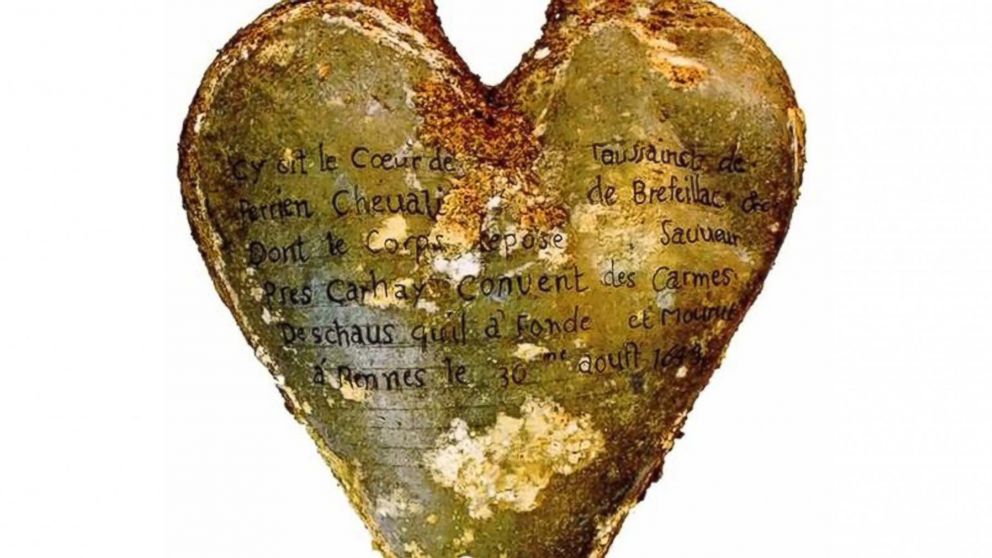CSI Renaissance: Scientists Find Heart Disease in Embalmed Hearts
Centuries-old hearts may hold a key to what ailed our ancestors.

— -- Heart disease may be a big problem in modern times and one of the top killers in the U.S., but it’s been an issue for centuries, according to new findings from French researchers.
Researchers from the National Institute for Preventive Archaeological Research announced yesterday that they found signs of heart disease on embalmed hearts they retrieved from five heart-shaped lead urns in Rennes, France. The urns were part of a grave site at a local convent.
Using MRI and CT scans to examine the preserved hearts, researchers found signs of heart disease including plaque lining the arteries. Some of the tissue was rehydrated so it could be studied more easily. The hearts dated back to the 16th or early 17th century.
"Since four of the five hearts were very well preserved, we were able to see signs of present-day heart conditions, such as plaque and atherosclerosis," said study author Fatima-Zohra Mokrane, radiologist at Rangueil Hospital at the University Hospital of Toulouse said in a statement yesterday.
Although the hearts showed some similarities when it comes to heart disease, it also showed the difference in modern burial practices. A heart from one man was found in an urn buried with his wife.
"It was common during that time period to be buried with the heart of a husband or wife," said Mokrane. "This was the case with one of our hearts. It's a very romantic aspect to the burials."
Dr. Daniel Munoz, cardiologist at Vanderbilt University, said the discovery sheds light on how heart disease has affected people over time.
"It’s certainly been around than any of us and much longer than a lot of the behavioral and lifestyle issues," Munoz told ABC News. "It speaks to the fact that it certainly has a genetic component."
Munoz said, in modern times researchers have been better equipped to combat heart disease through medication, surgery and education but that risk factors like obesity, diabetes and smoking continue to be an issue.




